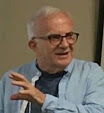 |
| The Conversion of Saint Paul |
Never mind that the core values of his people challenged his kind of chauvinism. At the very heart of his nation’s faith were commands to care for the poor, welcome the alien and embrace the stranger. His nation’s faith eschewed arrogance, greed and any callous disregard for others. It enjoined deep humility, love of neighbor, and reverence for God and creation. In his own mind, he accepted this. He believed that he fulfilled the law. He was certain of his righteousness. Thinking he was superior in intellect and learning, he was scornful of others. Later generations would say that he valued the “letter” over the “spirit” of the law, punishment over healing, and conflict over reconciliation.
He lived in turbulent, complicated times. He was certain that he was defending the survival of his nation against forces of profound change sweeping across it. He joined a cadre of like-minded enforcers who turned to violence even against their own people. Always a zealot, his very name – Saul of Tarsus – inspired fear among those on the periphery of power. He was obsessed with seeking out and destroying anyone who marched to a different drummer.
On a “search and destroy” missions to Damascus, he was struck by a “breakthrough” intervention. Our tradition tells us that the living spirit of Jesus Christ encountered, rebuked, wounded and finally transformed him. Despite divine assurances to the contrary, the people he purposefully came to Damascus to destroy naturally distrusted him. As part of his transformation, he withdrew from the madding crowd. He went into the desert to wrestle with - and overcome - his demons. Chastened, he emerged a different man.
History proved the depth and authenticity of his conversion. He is known today as Paul, not Saul, and as one who proclaimed a breath-taking vision of inclusion. It struck at the root of an imperial, patriarchal and oppressive order; it continues to challenge modern imaginations.
I thought of this when I listened to Donald Trump today. On his journey from the campaign soapbox to the presidential podium, thousands are clamoring for his attention. As much as he loves crowds, I encourage him to take time away from them, especially now, away from Twitter and social media, away from his businesses, away from the myriad of details that engulf him. I pray that the daunting responsibilities of the office will humble him. I pray that he will have his own Damascus Road encounter.
Mr. Trump wants America to be "great again". He wants to be a “great” president. For this to happen, his understanding of greatness must be deconstructed and reassembled. The world's faith traditions offer storehouses of wisdom for this task. They agree that true greatness is not found in wealth, glamour, acclamation or power. Rather, it unobtrusively inhabits service to the most vulnerable, protection for the marginalized, and substantive hospitality toward aliens and strangers. Mr. Trump’s greatness will be found, paradoxically, when he finally stops seeking it. Indeed, “greatness” will find him when a genuine and inner humility informs his worldview, an ever-expanding sensitivity guides his deciding, and a profound reverence for God and all creation shapes his fundamental commitments.












No comments:
Post a Comment